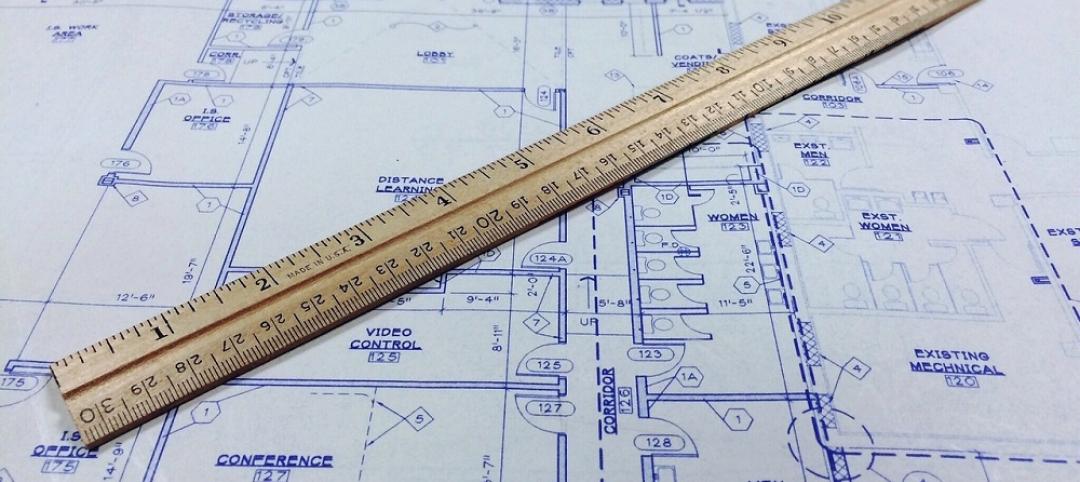The American Institute of Architects (AIA) and the American Institute of Architecture Students (AIAS) committed to timely passage of the National Design Services Act (NDSA), which will give architecture students the same relief from crushing student loan debt, which is already granted young lawyers, doctors and others – in return for community service.
The bipartisan legislation, H.R. 4205, was introduced by Rep. Ed Perlmutter (D-CO) and co-sponsored by Rep. Greg Meeks (D-NY), Rep. Gwen Moore (D-WI) and Rep. Dennis Ross (R-FL).
“Millions of young people aspire to help their communities build a better future – but a lack of opportunity and the crushing cost of education hold them back,” said AIA CEO Robert Ivy, FAIA. “As a result, the design and construction industry faces a severe shortage of talent at exactly the moment America needs to rebuild for the future.
“We commend Congressman Perlmutter for recognizing this issue, for introducing the NDSA and for enlisting his colleagues on both sides of the aisle to work for its ultimate passage,” Ivy said. “I promise that they will have the full resources of the AIA as well as the architecture student community behind them when more than 600 AIA members convene in Washington, D.C. next week as part of the AIA’s annual grassroots conference.”
"The National Design Services Act will help promote sustainable economic development and jobs by ensuring aspiring architects are able to gain valuable experience while giving back to their communities designing public projects such as schools, health clinics, housing facilities and libraries,” said Rep. Perlmutter. “In return, the bill will alleviate some of the barriers new students face as they pursue their dreams in architecture."
“There is no shortage of enthusiasm in our membership for passing this bill,” said Joshua Caulfield, Chief Executive Officer of AIAS. “And we intend to leverage that enthusiasm to the hilt as we go forward and call on our members of Congress.”
Student debt is one of the most critical issues facing the economy – not to mention the next generation of design professionals. Roughly 40 million Americans owe $1.2 trillion in student-loan debt, an amount that surpasses every other type of household debt except mortgage debt. Architecture student graduates come out of school with approximately $40,000 in student loan debt, ranking architecture as one of the disciplines with the highest loan balances in the country.
The NDSA eases this burden by providing loan assistance to architecture students and recent graduates who contribute their design services to underserved areas. The bill would authorize the Department of Housing and Urban Development (HUD) to create a program allowing architecture students to work with Community Design Centers in exchange for assistance with their student loans.
As a result, communities will receive a broad range of architecture services that may not have otherwise been available, and architecture graduates will be induced to stay in the profession.
At a recent meeting of AIAS Milwaukee-Wisconsin where AIA National staff discussed the proposal, architecture students immediately began organizing a phone bank for students to call their members of Congress to urge them to support the bill.
One young architect, Evan Litvin of Philadelphia, has launched an online petition that enlists the support of architects nationwide for speedy passage of the NDSA. The link to that petition can be found here.
Related Stories
AEC Tech | May 9, 2016
Is the nation’s grand tech boom really an innovation funk?
Despite popular belief, the country is not in a great age of technological and digital innovation, at least when compared to the last great innovation era (1870-1970).
Sports and Recreational Facilities | May 6, 2016
NBA’s Atlanta Hawks to build new practice center with attached medical facilities
The team will have easy access to an MRI machine, 3D motion capture equipment, and in-ground hydrotherapy.
Big Data | May 5, 2016
Demand for data integration technologies for buildings is expected to soar over the next decade
A Navigant Research report takes a deeper dive to examine where demand will be strongest by region and building type.
Urban Planning | May 4, 2016
Brookings report details how different industries innovate
In the new report, “How Firms Learn: Industry Specific Strategies for Urban Economies,” Brookings' Scott Andes examines how manufacturing and software services firms develop new products, processes, and ideas.
Architects | May 3, 2016
Study finds engineering, architecture among the best entry-level jobs
The results balanced immediate opportunity, job growth potential, and job hazards.
Architects | Apr 25, 2016
Notable architects design mini-golf holes for London Design Festival
Visionaries like Paul Smith, Mark Wallinger, and the late Zaha Hadid all helped in designing the course, which will be integrated into London’s Trafalgar Square.
University Buildings | Apr 25, 2016
New University of Calgary research center features reconfigurable 'spine'
The heart of the Taylor Institute can be anything from a teaching lab to a 400-seat theater.
Architects | Apr 22, 2016
What leads to success in the density-driven workplace?
CallisonRTKL’s Kirill Pivovarov explores how densification can lead to increased productivity and innovation in the workplace.
Government Buildings | Apr 22, 2016
Public-private partnership used to fund Long Beach Civic Center Project
Arup served as a lead advisor and oversaw financial, commercial, real estate, design, engineering, and cost consulting.
High-rise Construction | Apr 20, 2016
OMA reveals designs for its first Tokyo skyscraper
The goal is for the Toranomon Hills Station Tower to transform its neighborhood and serve as a hub for international business.

















